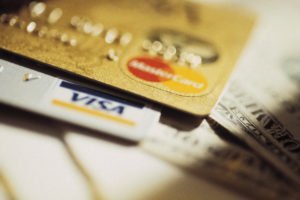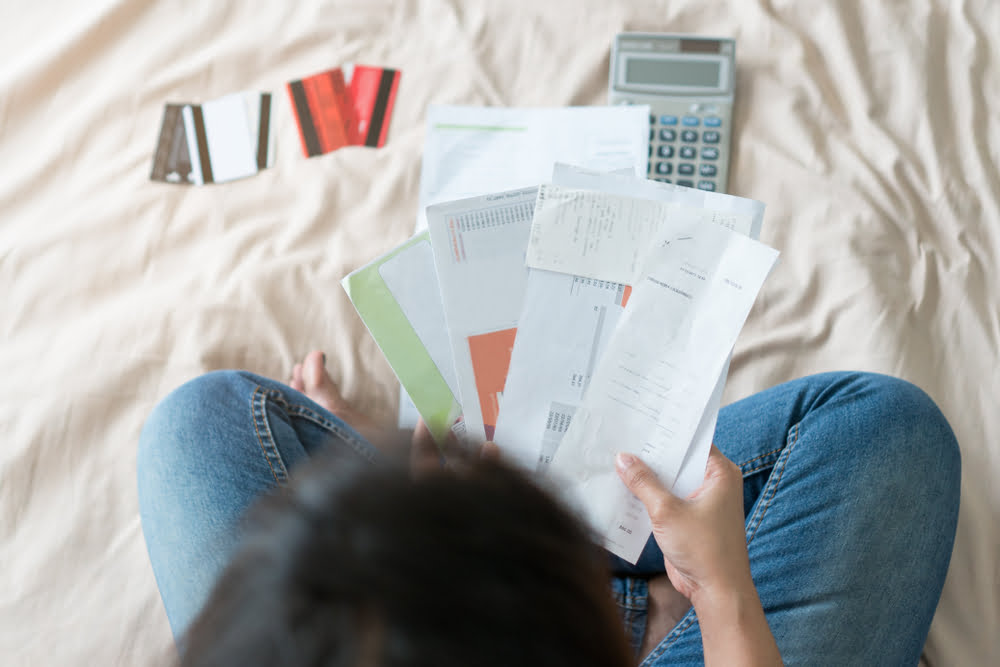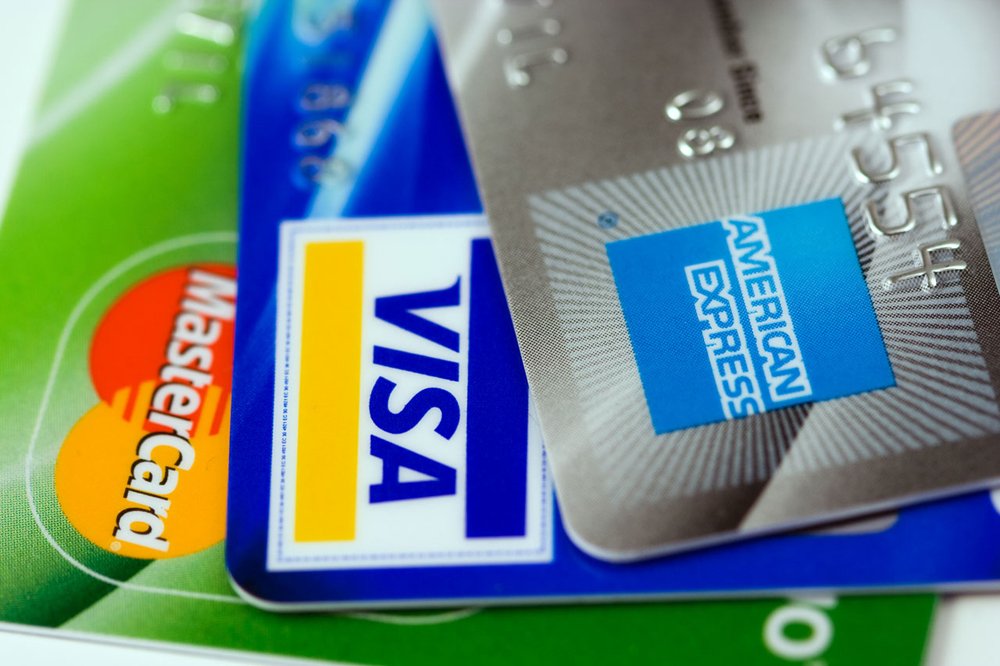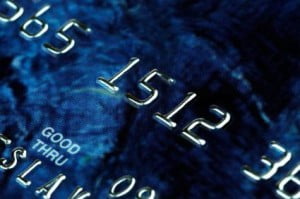Dischargeable Debts in a Chapter 7 Bankruptcy
When it comes to Chapter 7 bankruptcy , the primary goal is to get most (if not all!) of your personal debts discharged. From the sky-high credit card bills to medical debts – and everything in between – discharging your biggest debts can give you the fresh start you need to start living a financially stable life.
However, it is important to note that not all of your debts will be dischargeable under a Chapter 7 bankruptcy. Additionally, you may find that more non-exempt property (such as second cars or houses) can be used to satisfy your debts in a Chapter 7 than in a Chapter 13 bankruptcy .
So what are dischargeable debts in a Chapter 7 bankruptcy – and what debts will be leftover once your bankruptcy case has been approved?
Let’s take a look:
Chapter 7 Bankruptcy Discharge
Dischargeable debts will vary according to your state laws; however, using federal guidelines, these are the debts you can expect to discharge under a Chapter 7 bankruptcy:
- Any business debts that were incurred under your tax ID or Social Security Number
- Credit card debts
- Medical debts
- Mortgages (however, there is a significant risk you will lose your home if you discharge your mortgage debt)
- Auto loans and leases (again, you run the risk of losing your car if you discharge your auto debt)
- Any collections against you
- And other personal debts
Now that you know the debts that can be discharged against you (including the risks they carry), here are debts that you will still have to deal with once your Chapter 7 bankruptcy case has been approved.
Chapter 7 Bankruptcy Non-Dischargeable Debts
Under federal and state laws, these debts cannot be discharged under a Chapter 7 bankruptcy:
- Child support and alimony (including any back support owed);
- Student loans (the only exception to this rule is if paying off the student loans will cause you significant financial hardship. This can be difficult to prove, so be sure to have an experienced and knowledgeable bankruptcy attorney by your side for this fight);
- Income taxes that are less than three years old;
- And any court judgments against you that resulted from drunk driving (for example, if you injured or killed someone while driving intoxicated).
Find an Experienced Bankruptcy Attorney
Find an experienced bankruptcy attorney to help ensure that any and all potentially dischargeable debts are eliminated when you file for a Chapter 7 bankruptcy.
Credit Card Fraud in Chapter 7 Bankruptcy
 While most credit card debt is dischargeable in a Chapter 7 bankruptcy, there are occasions when a judge may require a debtor to repay a lender.
While most credit card debt is dischargeable in a Chapter 7 bankruptcy, there are occasions when a judge may require a debtor to repay a lender.
The most common reason for judges to require repayment of credit card
debt in Chapter 7 bankruptcy is if the debtor committed fraud. In other
words, if the judge determines that the debtor charged up a high balance on their card without any intention of paying it back.
Creditors who suspect fraud from an individual filing for bankruptcy can have the judge review the case for evidence of this accusation. One of the telltale signs is the incurring of large credit card charges after consulting with a Chapter 7 bankruptcy lawyer, or finding that the individual’s bankruptcy fees and expenses were paid with a credit card. Judges will also look at credit transactions in the months leading up to the bankruptcy filing. Often, people mistakenly assume that since they are already going to file for bankruptcy, they can safely make huge purchases without worrying about having to pay them back. However, this too is considered fraudulent behaviour, which may result in the debt not being eligible for a discharge. If the judge finds that you made no attempts at repayment on purchases made just before a bankruptcy filing, you may end up still having to pay the debt, which defeats the entire purpose of a bankruptcy filing.
Fraud is a very serious matter when it comes to bankruptcy. To avoid having your Chapter 7 bankruptcy complicated or even denied due to fraud, it is best to avoid any use of your credit card once you begin considering Chapter 7 bankruptcy. It is in your best interests to speak with a Dallas bankruptcy lawyer at Allmand Law Firm, PLLC about the bankruptcy process and how it can benefit you. We are here to guide you through the process and help you avoid any potential complications.
Call for a free consultation
Initial case evaluations are provided free of charge, so contact us today to take your first steps toward financial freedom.
Does All Unsecured Debt Qualify for Discharge in Chapter 7 Bankruptcy?

There are unsecured debts that are considered non-dischargeable in Chapter 7 bankruptcy; meaning they cannot be wipe out or eliminated. Non-dischargeable debt in Chapter 7 includes back child support, alimony or spousal support and student loan debt . Student loan debt is often difficult to discharge under specific circumstances. Child support and alimony are considered priority debts. Filing bankruptcy may help you discharge other unsecured debt in order for you to make support payments easier.
Tax debt is another unsecured debt that often doesn’t qualify for discharge in Chapter 7 unless certain requirements are met. For tax debt it has to be at least 3 years old, assessed by the Internal Revenue Service (IRS) and all tax documents for years in question would have to be filed. If you have debt related to fraud, such as writing bad checks or providing false information on a credit application, it may not qualify for discharge under Chapter 7.
Chapter 7 bankruptcy can be a powerful tool to help debtors gain control of their finances. It is important to review eligibility requirements and qualifications. Questions and concerns about outstanding debt obligations should be reviewed with a qualified bankruptcy attorney.
Call to speak to our bankruptcy lawyer!
How is Credit Card Debt Discharged in Chapter 7 Bankruptcy?
Chapter 7 bankruptcy allows qualifying debt such as credit card debt to be discharged. Once a discharge is granted the creditor can no longer pursue payment from the debtor. In most cases, the debtor is not required to pay income tax on debt that has been discharged and the debt is no longer enforceable against you.
Credit card debt is an example of unsecured debt; signature loans and medical bills are also under this category. Unsecured debt usually is not secured with property such as a home loan or vehicle loan. So when the bankruptcy court grants a discharge of the debt, the creditor receives nothing in return. When a discharge is being sought, it comes down to whether or not the debt was incurred honestly. This ensures the debtor receives an honest fresh start that many often seek when this chapter is filed.
In some cases, the debtor may not receive a discharge if the debt wasn’t incurred honestly. This could happen if you fail to report all credit card accounts or even continue using credit cards while filing your petition. If you go on spending sprees before filing and purchase luxury items or take out large cash advances from the card just prior to filing, the court may not grant a discharge.
Getting credit card debt discharged in Chapter 7 bankruptcy is often fairly simple. As long as you are honest with your attorney about your finances and report all outstanding debt, this may make your case easier for the court to review.
Call our bankruptcy attorney today.
Can I Keep My Credit Card if I File Chapter 7 Bankruptcy?
Most people look to file Chapter 7 bankruptcy to eliminate credit card debt . Some feel it may not be a good idea to keep your credit card especially if you plan on using it after your case is completed. The good news is it is possible to keep your credit card after filing bankruptcy. Many like to have at least one credit card afterwards for emergencies or when certain times call for a credit card such as making reservations online. But, if overspending lead your finances to spiral out of control you may want to avoid credit card use after bankruptcy.
In order for you to keep the credit card you’ll need to reaffirm debt associated with it. This basically states you will pay what is owed on the card after reaching a deal with the credit card company. When you file bankruptcy and include credit card debt, you list all the credit cards you have. This is important because you may not be able to get debt discharged. It is suggested that debtors review this decision carefully. If you reaffirm the debt on the card you will be responsible for making payments under a new agreement. The credit card company may decide if affirming the debt is an option. The credit card company may be willing to work with you in this situation and you may be able to negotiate a reduced amount depending on circumstances.
Call for a free bankruptcy consultation.
Reaffirming A Debt In Chapter 7 Bankruptcy
During Chapter 7 Bankruptcy a debtor is allowed under certain circumstances to reaffirm a debt. What this means is that the debtor will be allowed to continue to pay a debt so that he/she can continue to keep property such as a house or a vehicle. In Chapter 7 bankruptcy, a debtor who desires to reaffirm a debt must get the approval of the bankruptcy court. The bankruptcy court will only allow a debtor to reaffirm a debt if the debtor can afford it and if doing so would be in the debtor’s best interests.
For example, a debtor who earned $3,000 a month but had $2,900 in monthly expenses would most likely not be allowed to reaffirm a debt that would cost him/her $200 a month because it would put the debtor $100 into the hole. On the other hand, if that same debtor wanted to reaffirm a debt that would cost him/her $50 a month, the bankruptcy court would most likely approve of the plan.
Most debtors use reaffirmation to keep their home or car during bankruptcy while discharging other unsecured debt such as credit cards, medical bills and personal loans. If you are considering reaffirming a debt during bankruptcy, discuss your options with your bankruptcy attorney before you file. The bankruptcy attorney will take a close look at your budget and let you know if you would likely qualify for a reaffirmation or not.
Contact our bankruptcy lawyer today.
Using Chapter 7 Bankruptcy to Discharge Business Debt
Many business owners are confused on whether a personal bankruptcy filing has the ability to wipe out business-related debt. In many cases, this is possible depending on the type of debt and whether you are indeed personally liable for the debt. The way your business is structured may also affect your ability to obtain a discharge.
Chapter 7 bankruptcy can discharge common types of business debt similar to debt included in a personal Chapter 7 bankruptcy filing. These debts include medical bills, credit card bills, and judgments or lawsuits. Personal loans, promissory notes, obligations under contracts or lease agreements completed by a sole proprietor may qualify for discharge. Other unsecured debt obligations owed by a sole proprietor such as accountant, professional or supplier fees may be included for elimination.
If you have secured debt (property that is considered collateral) and file bankruptcy they are handled differently. If the secured debt has a deficiency (meaning you owe more on the outstanding balance than what the collateral is worth), the difference may qualify for a discharge. Keep in mind, the creditor can repossess the collateral if payments are in default.
The way your business is structured may help determine how business debt is discharged. If the debt is owed by the LLC (limited liability corporation) or corporation, the creditor may pursue the business for payment. In this case, the debt may be handled differently. To learn whether your business debt can be included in a bankruptcy discharge, discuss your situation with an experienced bankruptcy attorney.
Reference:
https://www.nolo.com/legal-encyclopedia/business-debts-discharged-chapter-7-bankruptcy-32415.html


